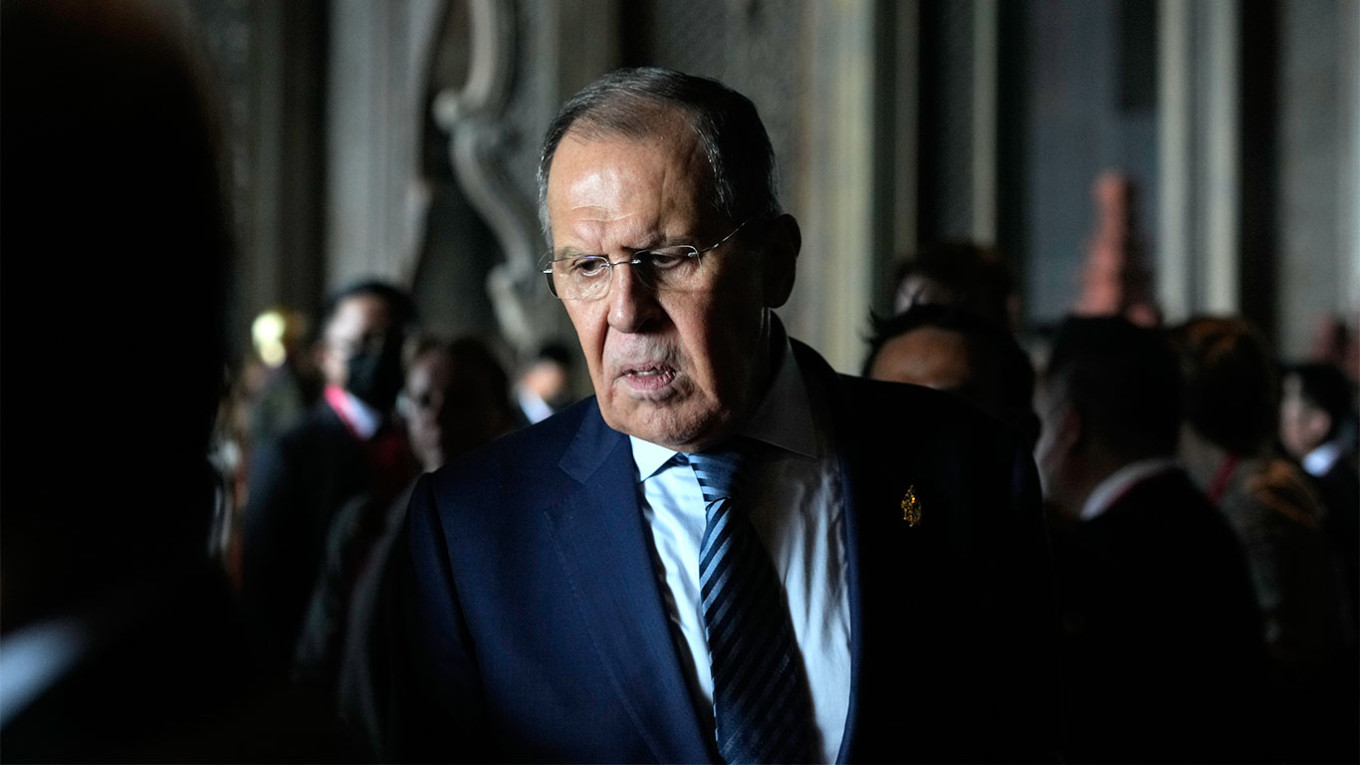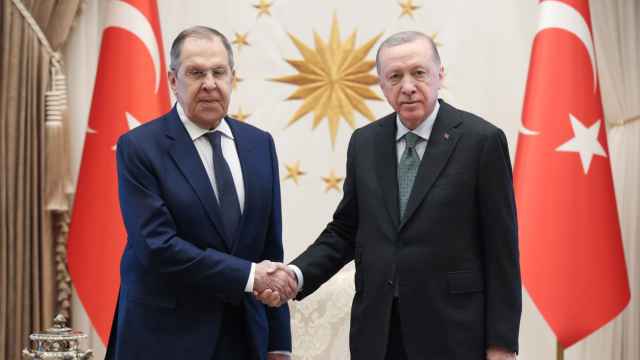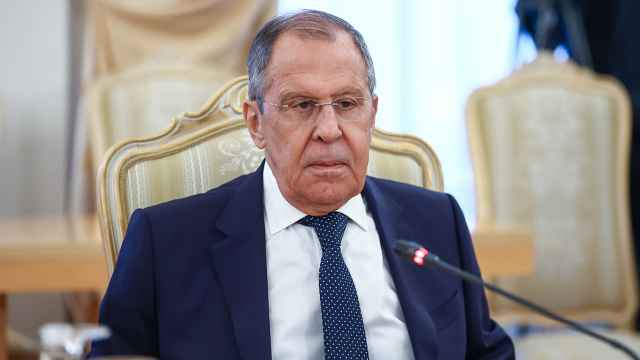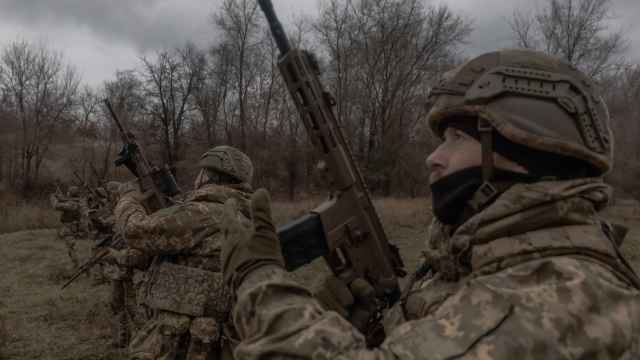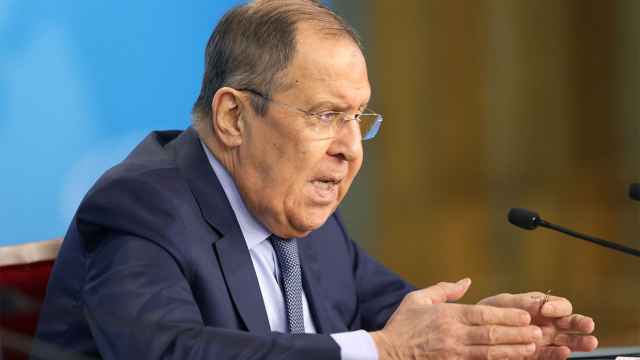Russian Foreign Minister Sergei Lavrov said Tuesday that Ukraine has put forward “unrealistic and inadequate” terms for future peace talks.
Lavrov said he spoke with French President Emmanuel Macron at the G20 summit in Bali, where he reiterated accusations that Kyiv “categorically refuses” negotiations with Moscow.
“I reminded him that all the problems are on the Ukrainian side, which categorically refuses any negotiations and puts forward terms that are obviously unrealistic and inadequate,” Lavrov told reporters.
Ukrainian President Volodymyr Zelensky addressed the G20 via video link earlier Tuesday, where he presented a 10-point peace plan to end Russia’s invasion. In addition to safety guarantees, the plan reportedly includes proposals for a special tribunal for alleged Russian war crimes.
President Vladimir Putin's delegate at the summit, Foreign Minister Sergei Lavrov, remained in his seat throughout Zelensky's address, two diplomatic sources told AFP.
Speaking with reporters later, Lavrov said Putin and other Russian officials have repeatedly confirmed their readiness to negotiate peace amid continuing battlefield setbacks suffered by the Russian military.
“If anyone is refusing, it is Ukraine. The longer it refuses, the more difficult it will be to reach an agreement,” Lavrov said.
The Kremlin meanwhile said Russia’s “special military operation” will continue, blaming Ukraine for its “factual and legal” unwillingness to negotiate.
AFP contributed reporting.
A Message from The Moscow Times:
Dear readers,
We are facing unprecedented challenges. Russia's Prosecutor General's Office has designated The Moscow Times as an "undesirable" organization, criminalizing our work and putting our staff at risk of prosecution. This follows our earlier unjust labeling as a "foreign agent."
These actions are direct attempts to silence independent journalism in Russia. The authorities claim our work "discredits the decisions of the Russian leadership." We see things differently: we strive to provide accurate, unbiased reporting on Russia.
We, the journalists of The Moscow Times, refuse to be silenced. But to continue our work, we need your help.
Your support, no matter how small, makes a world of difference. If you can, please support us monthly starting from just $2. It's quick to set up, and every contribution makes a significant impact.
By supporting The Moscow Times, you're defending open, independent journalism in the face of repression. Thank you for standing with us.
Remind me later.


